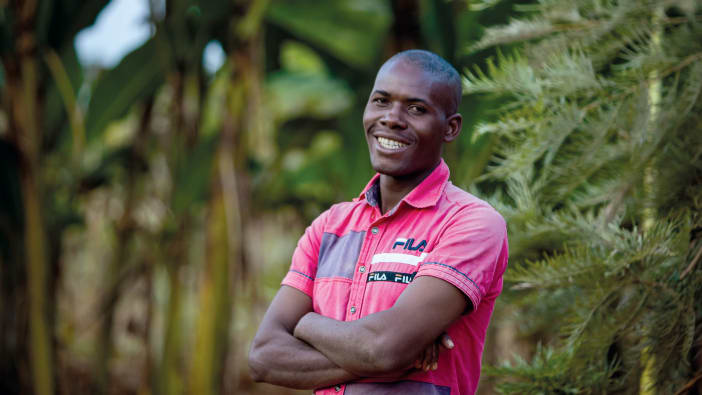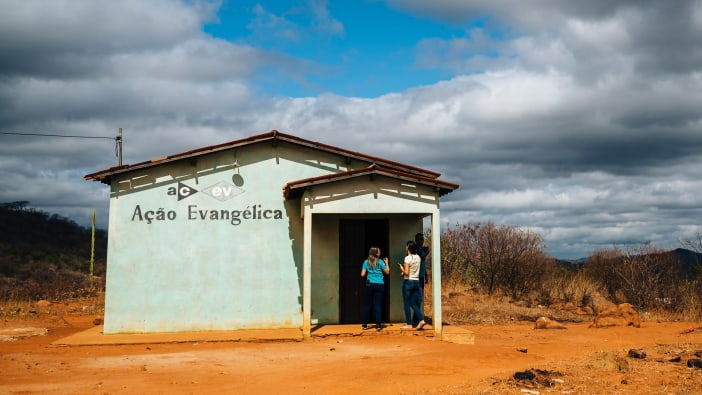by Alexis Andino.
For a long time development workers have learnt and put into practice the principle that ‘development’ comes from agencies and is aimed at communities. We take for granted that we are the bearers of a wealth of ‘new ideas’ which we are eager to share with people, to ‘take development to the community’.
Even when these theories are shared and guided by community participation, we may still find our work style is ‘top down’. Ideas come from outside the community and there is little room for the community to generate its own ideas. In passing on these beliefs, each of us has been influenced by situations, models and processes which have helped us to think and behave in a certain way. In my own case, it was the experience shared by a group of lay readers, pastors and community workers which helped me to realise that if we do not carefully think through our role as ‘agents for change’, we risk taking away people’s roles in their own community. Clearly our motivation is our Christian love and desire to help solve the problems of those who suffer. However, we have to draw the line between Christian commitment and paternalism.
Failing to record our own experiences and how our thinking develops can often prove a weakness. Here I will try to share some of my thoughts and conclusions about an area many of us may be involved with – Christian community development. Of course, these thoughts will not necessarily coincide with your own ideas and experiences, but they may help to challenge you to spend some time recording your own experiences and thoughts. Let’s consider what factors should be taken into account to avoid turning our role as community facilitators into that of ‘development’ organisers.
Understanding our identity
If we come from outside the community, we must be aware that we are strangers and may not know or understand many of the elements and situations which take place there. We may come from very different situations.
Identifying our role
As strangers who have come to serve the community, we must give up any ideas of self importance and authority. We need to adopt a permanent learning attitude. All comments and suggestions should be seen as new assets we can add to our own experience as servants of God for his glory.
Consideration and respect
We often tend to talk too much and listen too little. We like to hold on to our own standards and expectations without taking into consideration the experiences of community members. A good way to earn friendship and respect is to respect others, especially their priorities, hierarchy and sometimes old-fashioned attitudes.
We must learn to accept that the historic roots of most churches in Latin America (and elsewhere) had few social concerns. We need wisdom to learn and understand more about those historic roots and their impact on the everyday reality of our churches. Local pastors need friends who can encourage and support them in their ministry, not so called ‘friends’ who come trying to pull apart the structure and concerns of the church.
Sharing community experiences
Development agents need to become involved in community activities such as worship, playing sport and taking time to join in conversations during rest times and evenings. All these are vital parts of community life and facilitators should not keep to one side. Church leaders, members and the general community will all take pleasure in development agents who try to build up relationships with the community. This helps us develop our own understanding of the community and builds trust with community members. (Read 2 Corinthians 1:7.)
Friendships
All of us need to be accepted by others with both our strengths and weaknesses. It is easier to develop friendships with people we easily identify with. However, we also need to develop friendships with people we find harder to like so that we will be accepted by the whole community.
We must also be careful to find out about sensitive aspects of community life such as family squabbles, domestic violence, alcoholic husbands, unmarried mothers etc. We are working towards encouraging unity and cooperation and must use great wisdom in developing relationships and trust and showing tact in difficult situations.
Sharing innovations
Once we have earned the community’s trust we may be able to begin a step-by step process of sharing some ideas and experiences which may be relevant to the community. We must remember that we are not just earning the community’s trust in order to pass on knowledge. Our role as facilitators is to help people find their own answers to their problems, through encouraging new ideas and community action – not by manipulating the process.
Let us look critically at our role in serving communities. Do we need to readjust our work patterns with local churches and communities?
Alexis Andino is an agricultural expert who has worked for some years as a church based community project facilitator for Christian Service Organisations in Honduras, Central America.
He is Executive Director of the Honduran Evangelical Development Organisations Council (CONSEDE). CONSEDE ApDo Postal 4339 Tegucigalpa Honduras Central America









